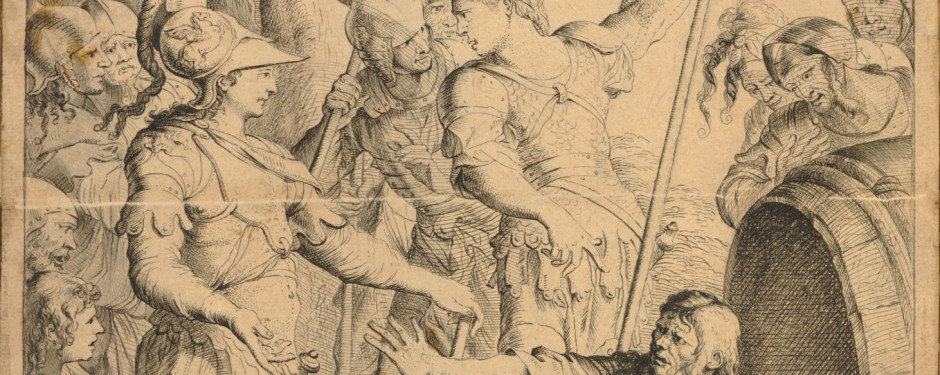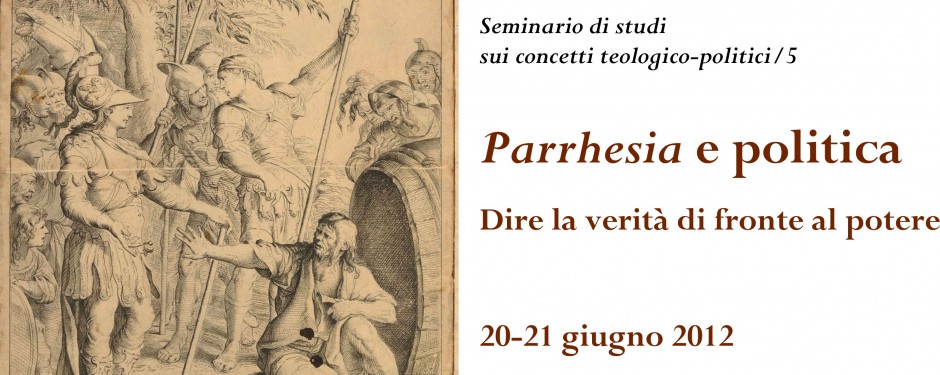Parrhesia and Politics. Speaking Truth to Power /5
Parrhesia e politica. Dire la verità di fronte al potere /5
20-21 June 2012
The word “parrhesia” (παρρησία) appears for the first time in Euripides and is etymologically derived from pan (everything) and rhen (to say). It therefore means the right to say everything and, more precisely, to tell the truth without dissimulation or reserve. It originally belonged to the political language of the Greek poleis and referred to the freedom of speech that distinguished the Athenian citizen. It has gradually taken on a broader moral meaning of “courageous frankness” and “frank criticism”, as opposed to flattery.
Similarly different meanings of the term also occur in the Bible. In the LXX version, for instance, parrhesia is the action of openly telling the truth, or refers to the courage of the righteous man before God and others. In the New Testament, the word is used to describe Jesus’ public preaching as well as the apostles’ fearless testimony and boldness, which came as a gift from the Holy Spirit.
Ancient traditions thus clearly show that the concept of parrhesia offers precious insight into the relationship between politics and truth, which is actually explored by Michel Foucault and the lectures he dedicated to this theme in the last years of his life. The seminar aimed to develop such an insight through a close historical and conceptual reconstruction of the notion of parrhesia, particularly as far as theological and political implications of “telling the truth” are concerned.
Speakers: Pejman Abdolmohammadi, Andrea Aguti, Massimo Campanini, Sandro Chignola, Roberto Gatti, Maurizio Giangiulio, Massimo Giuliani, Barbara Henry, Roberto Lambertini, Milena Mariani, Paul Alexis Mellet, Maria Chiara Pievatolo, Gian Luigi Prato, Debora Spini, Silvano Zucal, Massimiliano Traversino, Dante Fedele, Andrea Colli, Stefano Marchesoni, Raffaele Russo, Lorena Cebolla-Sanahuja
Download the seminar program





